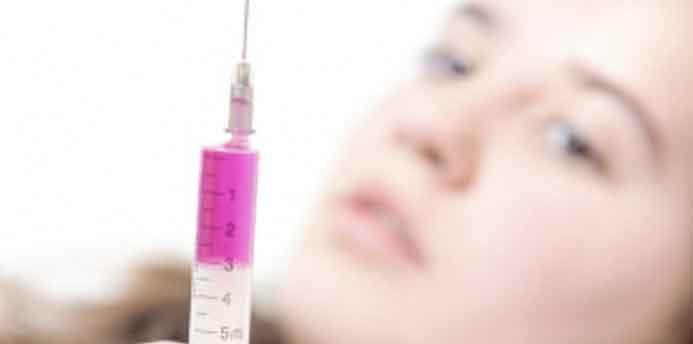I know, another drug causing a commotion. Here we are with Gardasil, a vaccine for 4 types of the human papillomavirus (HPV) and cervical cancer, minimally studied and introduced to the public in June 2006 and still forward in the news as reports of serious side effects are continually reported.
As an individual at increased risk for cervical cancer, my gynecologist was adamant that I get the Gardasil vaccine. Even with increasing reports of serious side effects, she thought it was a good idea for me to get the 3 shot series.
Among the millions of people who die of cancers each year in the United States is a small number of women who succumb to cervical cancer annually. In fact, while roughly 20 million people are infected with the human papillomavirus (HPV) in the U.S., only about 3,700 women die of cervical cancer in the U.S. each year.
Since its introduction to the drug market, there has been considerable controversy surrounding Gardasil, distributed by pharmaceutical giant Merck & Co., Inc., and the stated versus actual effectiveness as a drug, as well as around the side effects of the vaccine. The drug is recommended for females ages 9 to 26 and is most effective in individuals who are not yet sexually active.
As I come up on the date for my final shot, I have found myself reading more about the drug and truly weighing its effectiveness.
The Facts
What better place to start my search than the Gardasil website.
Unfortunately, I found the site to be frustrating, as I kept finding the same literature copied and pasted in link after link, reminding me that “GARDASIL is the only cervical cancer vaccine that helps protect against 4 types of human papillomavirus (HPV): 2 types that cause 70% of cervical cancer cases, and 2 more types that cause 90% of genital warts cases. GARDASIL is for girls and young women ages 9 to 26.”
Looking for further information I turned to the Food and Drug Administration (FDA) and Centers for Disease Control and Prevention (CDC). The FDA mimicked the claims of Merck, while the CDC assured me that the FDA and CDC has been monitoring the drug since its release onto the market and that it was still safe (enough) to not be recalled. The CDC also stated the following statistics:
- As of June 1, 2009, more than 25 million doses of Gardasil were distributed in the United States.
- As of June 1, 2009, there were 14,072 VAERS reports of adverse events following Gardasil vaccination in the United States. Of these reports, 93% were reports of events considered to be non-serious, and 7% were reports of events considered serious.
This governmental tracking is not particularly reassuring, as it has most recently resulted in syncope (temporary loss of consciousness) being added to the “Warnings and Precautions” section of the Gardasil insert, stating that “To prevent falls and injuries all vaccine recipients should remain seated or lying down and be closely observed for 15 minutes following vaccination.” Additionally, I found that serious side effects of a nerve disorder and seizures have been reported.
As of June 1, 2009, more than 26 million doses of Gardasil have been administered in the U.S. Merck researcher and leading developer of the HPV vaccine Dr. Diane Harper reports that as of that date, “15,037 girls have officially reported adverse side effects from Gardasil to the Vaccine Adverse Event Reporting System (VAERS)” of the CDC, including Guilliane-Barre, lupus, seizures, paralysis, blood clots, brain inflammation, and others, with the CDC acknowledging 44 reported deaths from the vaccine.
Safety vs. Effectiveness
So, is the drug safe? The answer is that Gardasil is generally as safe as any other vaccine, meaning that there is potential for serious side effects but that most people tend to experience minor side effects like dizziness, nausea, and fever.
As far as effectiveness goes, Dr. Harper stated that “with the use of Gardasil, there will be no decrease in cervical cancer until at least 70% of the population is vaccinated, and in that case, the decrease will be very minimal. The highest amount of minimal decrease will appear in 60 years.”
Ultimately, the true effectiveness of the vaccine will not be known for many years. In the meantime, it is up to you and your daughter to discuss the importance of safe sex practices and whether or not it is beneficial for her to be vaccinated.
Recommended websites:

